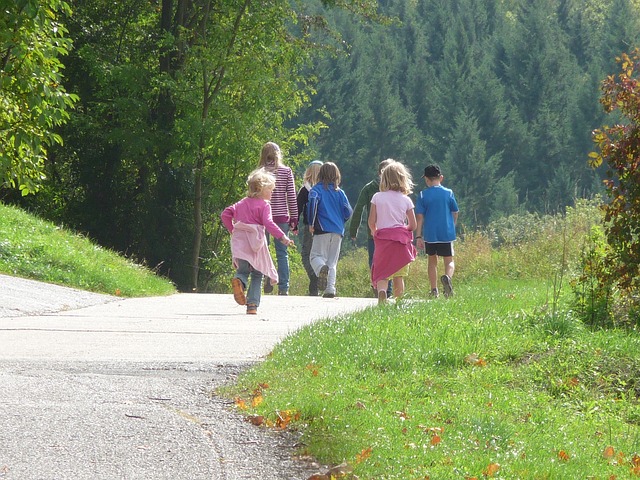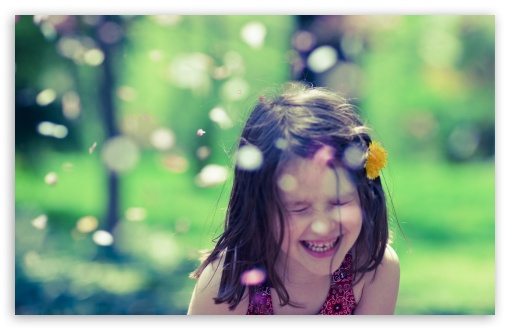The lost art of play...
Dec 05, 2014
I have to be honest with you, and tell you that sometimes visiting schools this year has made me so sad I have wanted to cry, and so angry that I've wanted to yell... why am I so emotional? Because play... really in depth, child-led, creative, heart-leaping, joyous play has all but disappeared. There simply is no time for it! And I look at these little people, and think this is an era we will look back on with regret, as children are pushed to learn more, faster and younger.
Everywhere I go I hear teachers lamenting the loss of what they all know is crucial in nuturing a developing child - the time and space to play.
Much has been said all over the internet about play. But one of my favourite articles has been written by a good friend, and long time homeschooling mother, and I couldn't sum it up any better myself. But before you read her words I need to prepare you a little. In sharing this article I'm not advocating that every family homeschool, and I'm not trying to push a particular way of life, or guilt trip anyone... but I'm hoping that by having a glimpse into the experience of play that homeschooled children are lucky enough to enjoy, that maybe, just maybe, a few of you who are teachers or parents, or friends of children will be inspired to create time, space and places for them to play with each other and play with you. Enjoy!

"Playing from childhood all the way to adulthood"
kindly shared by Bel Moore (previously published in Otherways Home Education Network Magazine)
In our society unlimited play is quite often seen as the realm of babies and preschoolers. Once a child enters the school years, they can certainly still play, but it should apparently occur outside of school hours, during holidays or in the very least be dominated by adults within the walls of the classroom. I can’t help but feel that four or five years old is a little too soon to impose restrictions on the magical realm of childhood…
When observing home educated children it is obvious that they feel free to play creatively for far longer than most of their schooled peers. At our local home ed meetings and camps it is common to see children aged 2 to 15 involved in an elaborate game with no props, direction or constraints.
This appreciation of imagination, multi-age interaction and lots of free time are some of the main reasons we have chosen to home educate our children for many years. To others it may seem an almost hedonistic lifestyle. They can’t fathom the liberty of sleeping in, eating a picnic breakfast in the cubby house, playing with lego for hours and similar activities - on a weekday! Most of us were raised to believe that weekdays are for formal learning, work and routine, and only on weekends should we relax and play.
Many of us were not encouraged to play at all beyond our preschool years, and were raised in a culture of work – good stable jobs, clean and tidy houses, neat lawns and a shiny car in the garage. Play seemed limited to occasional card or board games and organised sport. Families who included creativity, fantasy or magic (beyond Santa Claus) in their lives were unknown to me during my suburban childhood. When we first became part of our home educating community I witnessed parents who were musicians, storytellers and dancers - their children unhindered by the restraints of over-directed learning activities. Play was valued within this community for what it was – fun.
It was during this time that I understood more about my wish for my children to own open-ended toys – props for games of their own creation. We had never appreciated expensive gifts made of plastic containing batteries with flashing lights and artificial sounds, instead preferring basic blocks, dolls, dress-up items and, of course, nature. While we still furnished our home with various educational toys, puzzles, books and games, of equal value was the box of fabric remnants and bucket of recycled jar lids, the collections of seed pods and sea shells and any household objects our children chose to include in their lives of learning through play.
As an educator I had to learn to step back from my desire to lead my children in their exploration of the world, and simply observe their imitation and understanding. By providing opportunities for them to create and grow, by continuing to talk with them about the world around us and by allowing them time and space to play, I knew they could learn well.
A young home educated boy told me once that the best thing about homeschooling was that he could learn by doing. Play is all about learning by doing. We play when we cook, when we do our chores, when we grow our own food, when we fix things, when we go places and when we create beautiful things. If we approach all activities in our daily life as opportunities to discover, have fun and make a difference, then we are open to the possibility of learning. When we undertake tasks with a must-do attitude, and no joy, then our minds are less likely to absorb new knowledge.
This realisation is my greatest joy as a home educating parent. I have learned that it’s okay, even important, for adults to play as well. This challenges previous beliefs carried over from my own childhood and education - including my studies in primary teaching and developmental psychology.
I now know that the concept of active learning should not be limited to the early years. When teaching mathematics I seek practical explanations and examples to explain concepts to my children. With languages we use role play, conversation, stories and songs. How joyous it is to observe a 6 year old jumping on the trampoline chanting “January, February, March, April, May, June…”, simply because it’s fun!
Active, social learners are thinkers. They are confident and curious. They appreciate the opportunity to explore and discover. The world truly is their classroom – and their playground.

Bel Moore lives with her husband Gary and five of their six children in Far North Queensland. Their eldest daughter has moved to Melbourne for study and fun. They have been a home educating family now for two decades.
What if I find myself losing my temper at my children and I don't feel like playing?
How to connect with your child by listening
Disclaimer
The information, including but not limited to text, graphics, images, and other material contained on this website are for informational purposes only. This website is not intended to be a substitute for professional medical, healthcare or educational advice, diagnosis, or treatment. Always seek the advice of a qualified healthcare provider for any questions you may have regarding you or your child’s health concerns, and never disregard professional medical advice or delay in seeking it because of something you have read on this website.
blog comments powered by Disqus
